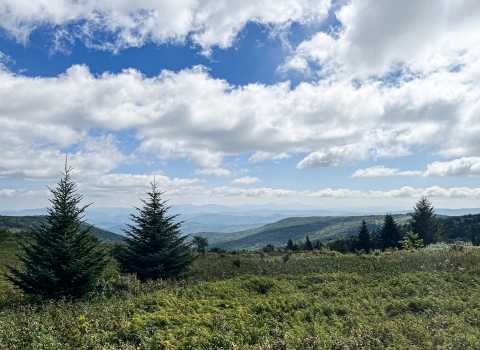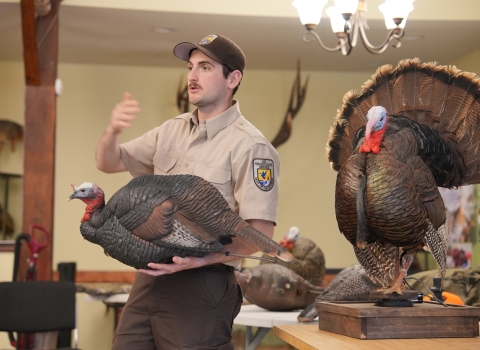Fishing has always been a part of my life. The earliest memory I have was when I was around 5, my dad took us to the Sunshine Skyway Fishing Pier in Tampa, Florida. My little 5-year-old self was amazed by all the sea creatures caught, and from that time my fascination with the ocean grew.
At the age of 12 my family moved to Yakima, Washington, where we transitioned from saltwater fishing to freshwater. Fishing the Columbia River took some time to master. I am still learning and have grown to love it. As a result, I have learned about sturgeon, salmon, and other fishes I had never heard of back in Florida.
This love for nature eventually led me to Washington State University, where I am currently majoring in Wildlife Ecology and Conservation with minors in forestry and Spanish. Heading into my fourth year of college I decided to apply for internships. I eventually applied for this opportunity with the U.S. Fish & Wildlife Service in Western Washington through a partnership with MANRRS (Minorities in Agriculture, Natural Resources, and Related Sciences).
As you may have guessed, I got the internship! It has been such an amazing summer with lots of field science experiences. The first weeks included work on Lake Washington and Lake Sammamish in Seattle area. We were collecting diet samples from non-native species such as yellow perch, smallmouth bass, largemouth bass, and rock bass to determine if they were consuming juvenile salmon.
The technique we used to get the samples was lavaging, which I had not heard of until this summer. Lavaging is the process of filling up the fish stomach with water so that it regurgitates what they have eaten. Once we got the sample, we placed it in a bag with a label describing the fish type, length, date, and net size. We then sent the samples back to the lab where we identified the prey species in each sample.
Another project involved working with our partners with Washington Department of Fish and Wildlife to study bull trout diet and migration on the Dungeness River. We used tangle nets and “hook and line sampling” (fishing), and on my first day I caught my first bull trout ever. I was so excited! At first I thought my lure was just stuck on a branch until I saw a giant fish attached to my line. Once we got the bull trout to shore, we took measurements and collected diet and fin ray samples. I will never forget how it felt to hold that fish in my hands. At that moment I realized how lucky I was to have this unique experience with a fish listed as threatened under the Endangered Species Act.
My favorite experience was studying salmon on the Elwha River. We captured fish using tangle nets, recorded their measurements, and tagged them with radio transmitters for tracking. I will never forget the salmon splashing when they were in the net. It’s such an amazing experience seeing these magnificent creatures up close. The days were long, and the work was sometime intense, but I would 100% do it again. The experience I gained capturing fishes, data collection, and radio telemetry tracking are skills that I will apply in my classes as I continue my degree.
Unfortunately, my internship had to come to an end due to school. This experience has taught me that I am on the right career path. I loved working with the salmon, bull trout, and other species such as Olympic mudminnows over the summer.
Watch Suzena sampling Olympic mudminnows in this video clip.
I am so excited to have gotten a glimpse of my future and extremely grateful for MANRRS and the Service for allowing me the opportunity of a lifetime. I would recommend others apply for these types of internships, even if you feel unqualified as I did. Do not hold yourself back from achieving your goals. After this journey, I can say with full confidence that I want to become a fish biologist and help with the conservation of all the fish in the Washington area.
Editor’s Note: Suzena Arias is a fisheries field intern serving at the Western Washington Fish and Wildlife Conservation Office, of the U.S. Fish and Wildlife Service. This internship is through a partnership with the Minorities in Agriculture Natural Resources and Related Sciences chapter at Washington State University and the Hispanic Access Foundation.










